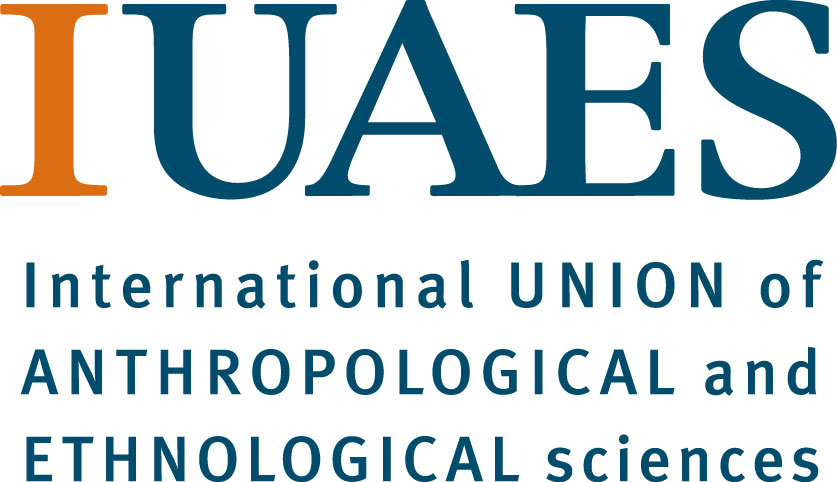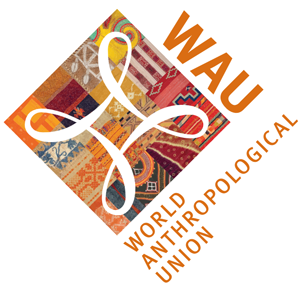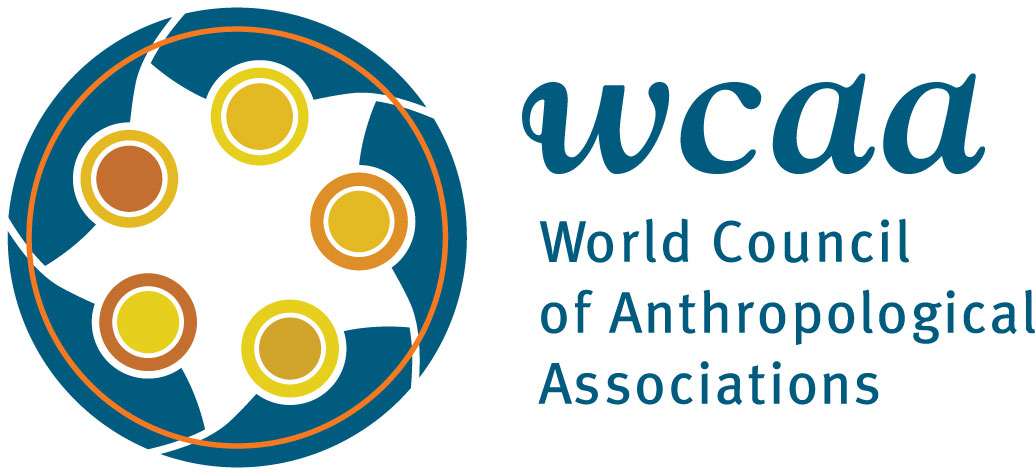
Keynotes: IUAES Congress 2014 Chiba, Japan
Keynotes
Being one, being multiple: a future for anthropological relations
by Marilyn Strathern (Emeritus Professor of Social Anthropology, University of Cambridge; Formerly William Wyse Professor of Social Anthropology, University of Cambridge)
10:30-12:30, 15 May
Abstract: What might we value about anthropology that we welcome its multiplication (diverse anthropologies), or indeed wish to imagine a future with them? In the spirit of the conference, it seems important to dwell on some of the ways in which anthropologists are always in the company of others, and their discipline in the company of other disciplines. While the plurality may be stimulating, however, it is the relations that count, and specifically the way relations create 'multiple' forms of knowledge. ('Multiple' is used here in a perspectivalist sense.) In thinking about the future, then, might its practitioners strive to keep anthropology multiple? If so, just what kind of tool does the general concept of 'relations' provide?
The question is interesting at a very simple level: general it might be, the concept also has its own specific history within the English language. Such parochialism is what makes the diverse strands of English-speaking anthropology but one among many 'anthropologies'. Yet despite the limitation of the concept ('relations'), for a long time it has at least been a marker for, or stand-in for, an aspiration on the part of its anthropological users: to see (beyond) their own conventions of knowledge-making. Hence their interest in other people's 'relational' worlds. Is this aspiration something they might identify as distinctive to their practice of the discipline? Can one even ask what forms relations might take under techniques of knowledge-making that flow from new modes of data management? It would be interesting to ponder on the procedures by which information-making processes are concealed, given that showing the relational steps of such making has been, at least in English, one way in which anthropology has endeavoured to show at once the truth and the contingency of its knowledge. In response to our hosts' outreach to the English-speaking world, this reflection is offered as a small return.
Discussants: Atsuro Morita (Osaka University) and Hugh Raffles (New School)
A rightful share: beyond gift and market in the politics of distribution
by James Ferguson (Susan S. and William H. Hindle Professor in the School of Humanities and Sciences and Professor in the Department of Anthropology, Stanford University)
10:30-12:00, 16 May
Abstract: If anthropology is to contribute to the work of creating better human futures, it will need to demonstrate the relevance of anthropological knowledge and anthropological ways of thinking to the great practical and political issues that today confront our increasingly interconnected but unequal world. This paper seeks to do that by showing the way that anthropological ideas about distribution (a topic that has been central to the discipline from the days of Mauss and Malinowski up to the present) may shed light on an emerging set of important political developments. These developments involve the emergence, across the global South, of new kinds of welfare states, within which new programs of direct distribution (so-called "cash transfers") are opening up possibilities for new sorts of politics. Against an analysis of the limitations of traditional ideas of nationalization in Africa, the paper seeks to show that new forms of social assistance are allowing the question of national ownership of wealth to be reimagined in new ways -- ways that may allow the idea of a ”rightful share” to take on a quite different significance than it does in traditional discussions of nationalization of natural resources. Taking recent campaigns for a “Basic Income Grant” (BIG) in South Africa and Namibia as a window onto these new political possibilities, it argues that a new politics of distribution is emerging, in which citizenship-based claims to a share of national wealth are beginning to be recognizable as an alternative to both the paradigm of the market (where goods are received in exchange for labor) and that of “the gift” (where social transfers to those excluded from wage labor have been conceived as aid, charity, or assistance). Beyond the binary of market and gift, the idea of “a rightful share”, it is suggested, opens possibilities for radical political claims that could go far beyond the limited, technocratic aim of ameliorating poverty that dominates existing cash transfer programs.
Discussants: Akio Tanabe (Kyoto University) and Eisei Kurimoto (Osaka University)
Public life and anthropology
Claudio Lomnitz (Campbell Family Professor of Anthropology, Columbia University; Formerly Distinguished University Professor of Anthropology and Chair of the Committee on Historical Studies, the New School University)
17:30-19:00, 17 May
Abstract: This paper is an introspective reflection on Anthropology in contemporary public life. It begins by tracing the place of Anthropology in public interest in Mexico and Latin America in broad strokes, from the time of the discipline’s inception, understriking the changing ways in which anthropological work has been welded to various definitions of the public interest. This portion of the essay establishes the nature of the recent realignment of anthropological work in public life, beginning in the 1980s, a change that runs very deep, since it was based on a radical reorientation of the horizon of collective expectations and of experience in which Latin American anthropologies operate. The paper then turns inward, to my own experience, in order to focus on engagement of anthropological work in three areas that I have been committed to: journalism, historical debate, and theatrical representation. These three spheres of public involvement in Mexico, and in Greater Mexico (including the United States) allow me to reflect on the challenges and opportunities facing anthropology in a continent in which professional space in the academy is limited.
Discussant: William Beeman (University of Minnesota) and Motoi Suzuki (National Museum of Ethnology)
Other featured sessions
Gustavo Lins Ribeiro, who convened the historic Recife conference in 2004, leading to the foundation of the WCAA, will hold a symposium commemorating the 10th anniversary:
P013 The past and future of the World Council of Anthropological Associations (WCAA Tenth Anniversary Symposium).
Those involved in the establishment and development of the WCAA will gather and discuss its past and future. The symposium will be followed by a special address by Leslie Aiello, President of the Wenner-Gren Foundation, who has provided crucial support for WCAA’s activities from its very beginning. Alongside this commemorative symposium, a video recording of the foundational Recife conference has been reedited and published online, at www.cva-iuaes.com/japan2014.
WCAA has also organized the following joint panels:
P087 Situating statelessness: anthropological perspectives (WCAA/Commission on Theoretical Anthropology panel)
P112 Urban futures (WCAA/IUAES/JASCA joint panel)
Faye Harrison, President of IUAES, and Yasuko Takezawa will convene a symposium:
P132 Engaging race and racism in the new millennium: exploring visibilities and invisibilities (IUAES/JASCA joint panel).
Gyanendra Pandey (Arts and Sciences Distinguished Professor of History and Director of Colonial and Postcolonial Studies Workshop, Emory University) is invited as keynote speaker, and a distinguished international group of anthropologists will together engage with his recent book, A History of Prejudice: Race, Caste, and Difference in India and the United States (2013).
In conjunction with the anniversary exhibition, Howard Morphy (Huxley Medalist 2013) and others will discuss art history:
P021 Converging worlds: anthropology and art history (JASCA panel).
Virginia R. Dominguez (Former President of AAA and Edward William and Jane Marr Gutgsell Professor of Anthropology at the University of Illinois at Urbana-Champaign) will convene the panel:
P050 Does the future of anthropology not include the USA as a field site (except as ‘anthropology at home’)?
Keiichi Omoto, IUAES Honorary Member, will convene the panel:
P129 Evolution of human cultures: towards an integrated anthropology of modern humans.
JASCA asked the presidents of WCAA member associations to provide short video messages on the conference theme, and many of them responded. A roundtable based on these video clips will take place in the first panel session of the conference on Thursday 15 May: PR003 Video messages from the world: the future with/of anthropologies (JASCA roundtable)
Panels organized by cooperating associations
Panels that have been convened by co-operating associations and organizations are as follows:
AAA - American Anthropological Association
P142 Common themes and varied approaches: globalization, migration and popular arts (AAA/JASCA joint panel)
P001 AAA Public education initiative: mobilities, migrations and displacements (AAA roundtable)
ABA - Brazilian Association of Anthropology
P145 Brazilian anthropology: present and future (ABA panel)
AJJ - Anthropology of Japan in Japan
R002 Celebrating 30 years of JAWS and 13 years of AJJ (JAWS/AJJ joint panel)
ASN -The Anthropological Society of Nippon
P133 Papers from members of the Anthropological Society of Nippon (ASN panel)
EAAA - East Asian Anthropological Association
P018 East Asian anthropology/anthropologies (EAAA panel)
EASA - European Association of Social Anthropologists
P012 Crisis as ongoing reality: perspectives from different anthropological locations (European Association of Social Anthropologists (EASA) and the Committee for World Anthropologies (CWA) panel
P064 Keywords of human mobility: a comparative cultural perspective (EASA/JASCA joint panel)
FSJ - the Folklore Society of Japan
P130 Reinventing folkloristics as a study of modernity: Japanese perspectives (FSJ panel)
IAA - Indian Anthropological Association
P131 Fifty years of anthropological associations: reflections on anthropologies and nations (IAA/JASCA joint panel)
JAWS - Japan Anthropology Workshop
P023 Living with disaster: comparative approaches (JAWS/JASCA joint panel)
R002 Celebrating 30 years of JAWS and 13 years of AJJ (JAWS/AJJ joint panel)
JSPA - Japan Society of Physiological Anthropology
P137 Environment and adaptation in human evolution (JSPA panel)
KOSCA - Korean Society of Cultural Anthropology
P134 Anthropology of Japan in Korea / Anthropology of Korea in Japan (KOSCA/JASCA joint panel)
NME - National Museum of Ethnology
P003 Anthropology of whaling issues: the present and future of whaling cultures (NME panel)
P027 Considering ideas and practices to create “age-friendly communities” (NME/Commission on Aging the Aged panel)
P038 Sedentarization and concentration among nomadic peoples (Commission on Nomadic Peoples/NME panel)
P043 Development and pastoralists (Commission on Nomadic Peoples/NME panel)
P051 Hunting, animal welfare, and defence against wildlife attack(NME panel)
P083 Heritage bridges people: towards recovery from wars and disasters (NME panel)
P136 Songs and dances of the Aynu: heritage and practice in Akan, Hokkaido, Japan (NME panel)
PSJ -Primate Society of Japan
P146 Local differences in ecology and behavior of non-human primates: genetic variation or culture? (PSJ panel)
SEAA - Society for East Asian Anthropology
R004 Strengthening JASCA’s publications in the world (JASCA/SEAA roundtable)
TSAE - Taiwan Society of Anthropology and Ethnology
P122 Action-oriented ethnological/anthropological studies and the development of contemporary Taiwan indigenous society (TSAE panel)
Panels organized by IUAES Commissions
The following IUAES Commissions have convened panels:
Commission on Aging and the Aged: P027
Commission on Anthropology and the Environment: P039
Commission on Anthropology of the Middle East: P001
Commission on the Anthropology of Women: P001, P016, P127
Commission on Children, Youth and Childhood: P03, P100
Commission on Enterprise Anthropology: P075, P084, P105
Commission on Global Transformations and Marxian Anthropology: P022
Commission on Human Rights: P098, P102
Commission on Indigenous Knowledge and Sustainable Development: P036
Commission on Intangible Cultural Heritage: P074
Commission on Linguistic Anthropology: P072
Commission on Medical Anthropology and Epidemiology: P033
Commission on Museums and Cultural Heritage: P094
Commission on Nomadic Peoples: P03, P043
Commission on Theoretical Anthropology: P07, P087
Commission on Urban Anthropology: P016, P035, P121
Live performance
Sponsored by the National Museum of Ethnology, Aynu songs and dances will be demonstrated by Akan Ainu Culture Preservation Society:
P136 Songs and dances of the Aynu: heritage and practice in Akan, Hokkaido, Japan (NME panel)
Film screenings
F001 New horizon of anthropological films from Japan
P104 Filming “science ethnography”






